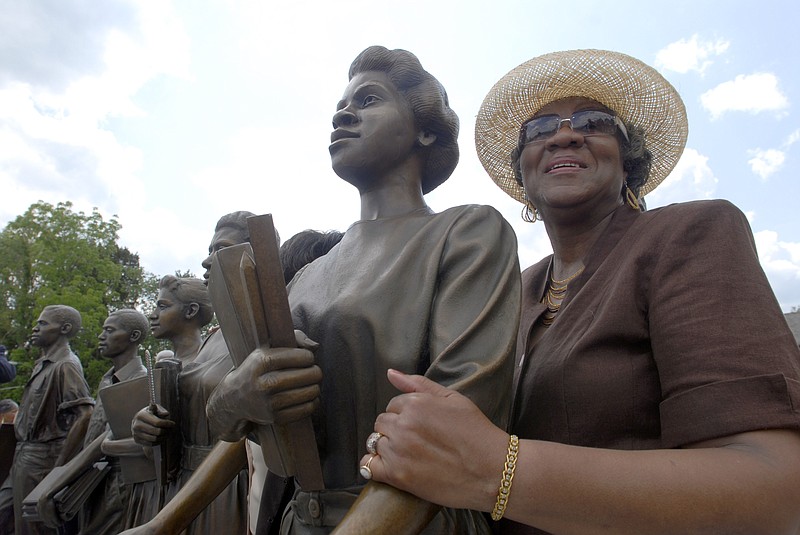NASHVILLE - U.S. Reps. Jim Cooper, D-Nashville, and Chuck Fleischmann, R-Ooltewah, have teamed up to sponsor a congressional resolution honoring the bravery and legacy of a dozen Black students known as the "Clinton 12," who in 1956 were among the first students to desegregate a Tennessee public high school.
Cooper called it a "privilege and an honor to honor their bravery and faith here today."
A U.S. district judge in Tennessee ordered desegregation in a legal case following the U.S. Supreme Court's decision in the landmark Brown v. Board of Education desegregation case two years earlier.
Fleischmann's congressional district includes Anderson County, which includes the city of Clinton. He said in the news release the Clinton 12 "embody our nation's creed that 'all men are created equal' and entitled to equal rights and justice under the law.'
"They represent the best in America and Tennessee and changed our state and our nation," Fleischmann continued. "I am proud to honor their courage and dedication to equality."
The desegregation effort, one of the first following the Brown decision, was both ugly and violent at times. White segregationists, including a New Jersey preacher, flocked to Clinton to speak out against allowing Black students to attend the school. The resolution notes that students in August 1956 "were pursued on their walks to school by white supremacists including the Ku Klux Klan, were threatened with violence and in some cases were forced to flee the community."
Then-Gov. Frank Clement, a Democrat, called out the National Guard to protect the students. Then the school was badly damaged by dynamite blasts, a crime that remains unsolved to this day.
"Amid this racism and violence, the Clinton 12 walked to school to pursue the right to an equal education," the resolution states, noting students "across the United States today still face discrimination and inequities in educational opportunities."
The resolution commends the Clinton 12 for their "bravery and perseverance in the face of hate" as well as the "courage of their families and friends who were subjected to racially motivated violence and intimidation in the years following the desegregation of Clinton High School."
A documentary, "The Clinton 12," was later made and aired on PBS in 2008 and 2009.
The Clinton 12 students were Jo Ann Allen Boyce, Bobby Cain, Anna T. Caswell, Minnie Ann Dickey Jones, Gail Ann Epps Upton, Ronald Gordon Hayden, William Latham, Alvah J. McSwain Lambert, Maurice Soles, Robert Thacker, Regina Turner Smith and Alfred Williams.
Contact Andy Sher at asher@timesfreepress.com or 615-255-0550. Follow him on Twitter @AndySher1.
